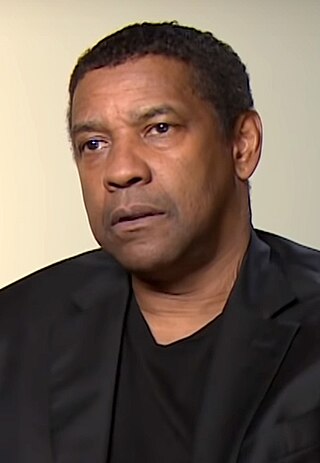
Denzel Hayes Washington Jr. is an American actor, producer, and director. In a career spanning over four decades, Washington has received numerous accolades, including a Tony Award, two Academy Awards, three Golden Globe Awards and two Silver Bears. He was honored with the Cecil B. DeMille Lifetime Achievement Award in 2016, the AFI Life Achievement Award in 2019, and in 2020 The New York Times named him the greatest actor of the 21st century. In 2022, Washington received the Presidential Medal of Freedom.

A Soldier's Story is a 1984 American mystery drama film directed and produced by Norman Jewison, adapted by Charles Fuller from his Pulitzer Prize-winning A Soldier's Play. Fuller had said Herman Melville's novella Billy Budd inspired the play. It is a story about racism in a segregated regiment of the U.S Army commanded by White officers and training in the Jim Crow South, in a time and place where a Black officer is unprecedented and bitterly resented by nearly everyone, and follows an African-American JAG officer sent to investigate the murder of an African-American sergeant in Louisiana near the end of World War II.

Norman Frederick Jewison was a Canadian filmmaker. He was known for directing films which addressed topical social and political issues, often making controversial or complicated subjects accessible to mainstream audiences. Among numerous other accolades, he was nominated for the Academy Award for Best Director three times in three separate decades, for In the Heat of the Night (1967), Fiddler on the Roof (1971), and Moonstruck (1987). He was nominated for an additional four Oscars, three Golden Globe Awards, and a Primetime Emmy Award, and won a BAFTA Award. He received the Academy of Motion Pictures Arts and Sciences's Irving G. Thalberg Memorial Award in 1999.

Emile Alphonse Griffith was a professional boxer from the U.S. Virgin Islands who won world titles in three weight divisions. He held the world light middleweight, undisputed welterweight, and middleweight titles. His best-known contest was a 1962 title match with Benny Paret. Griffith won the bout by knockout; Paret never recovered consciousness and died in the hospital 10 days later.
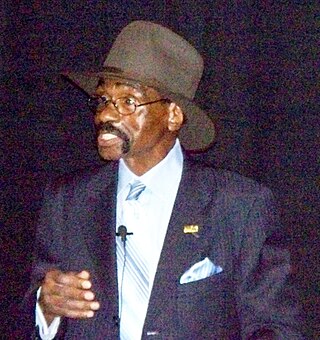
Rubin "Hurricane" Carter was an American-Canadian middleweight boxer, wrongfully convicted and imprisoned for murder, until released following a petition of habeas corpus after almost 20 years in prison.

Carmine Orlando Tilelli was an American boxer who was the world middleweight champion from 1963 to 1965,. He adopted the name Joey Giardello in order to join the U.S. Army while underage, and continued to use the pseudonym throughout his boxing career.
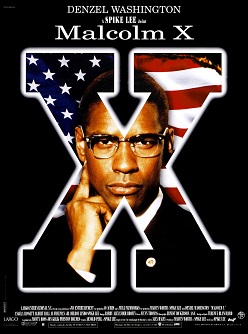
Malcolm X is a 1992 American epic biographical drama film about the African-American activist Malcolm X. Directed and co-written by Spike Lee, the film stars Denzel Washington in the title role, as well as Angela Bassett, Albert Hall, Al Freeman Jr., and Delroy Lindo. Lee has a supporting role, while Black Panther Party co-founder Bobby Seale, the Rev. Al Sharpton, and future South African president Nelson Mandela make cameo appearances. It is the second of four film collaborations between Washington and Lee.
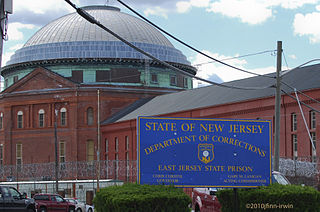
East Jersey State Prison is a medium-security prison operated by the New Jersey Department of Corrections in Avenel, Woodbridge Township, New Jersey. It was established in 1896 as Rahway State Prison, and was the first reformatory in New Jersey, officially opening in 1901. It housed 1,227 inmates as of 2020.
Vincent J. DeSimone, Jr. (1918–1979) was the chief of detectives of Passaic County, New Jersey, USA. In 1966, he was the lead detective who coached witnesses in the homicide case at Lafayette Grill in Paterson, New Jersey, in order to implicate boxer Rubin "Hurricane" Carter and John Artis. Carter and Artis were ultimately convicted and served nearly two decades in prison before the convictions were overturned in 1985.

Lean on Me is a 1989 American biographical drama film directed by John G. Avildsen, written by Michael Schiffer, and starring Morgan Freeman. It is based on the story of Joe Louis Clark, a real life inner city high school principal in Paterson, New Jersey, whose school is in danger of being placed into receivership of the New Jersey state government unless students improve their test scores on the New Jersey Minimum Basic Skills Test. This film's title refers to the 1972 Bill Withers song of the same name, which is used in the film. Parts of the film, including the elementary school scenes, were filmed in Franklin Lakes, New Jersey.
Lesra Martin is an American-Canadian lawyer, motivational speaker and writer. He is perhaps best known for helping to bring about the release of former boxer Rubin "The Hurricane" Carter.

"Hurricane" is a protest song by Bob Dylan co-written with Jacques Levy and released as a single in November 1975. It was also included on Dylan's 1976 album Desire. The song is about the imprisonment of boxer Rubin "Hurricane" Carter (1937–2014). It compiles acts of racism and profiling against Carter, which Dylan describes as leading to a false trial and conviction.
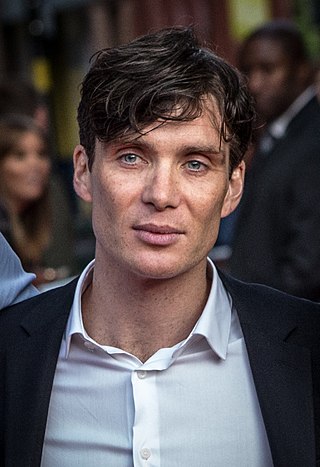
The Screen Actors Guild Award for Outstanding Performance by a Male Actor in a Leading Role in a Motion Picture is an award given by the Screen Actors Guild to honor the finest acting achievements in film.
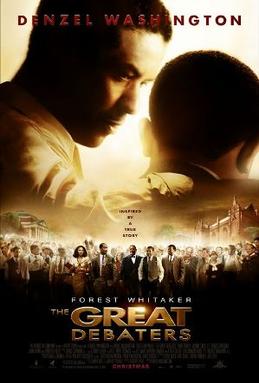
The Great Debaters is a 2007 American historical drama film directed by Denzel Washington from a screenplay by Robert Eisele. Based on a 1997 article for American Legacy by Tony Scherman, the film follows the trials and tribulations of the Wiley College debate team in 1935 Texas. It stars Washington, Forest Whitaker, Denzel Whitaker, Kimberly Elise, Nate Parker, Gina Ravera, Jermaine Williams and Jurnee Smollett.
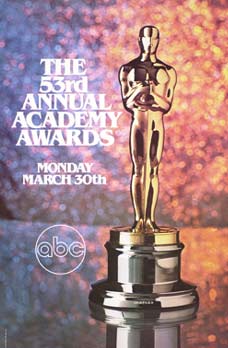
The 53rd Academy Awards ceremony, organized by the Academy of Motion Picture Arts and Sciences (AMPAS), honored films released in 1980 and took place on March 31, 1981, at the Dorothy Chandler Pavilion in Los Angeles beginning at 7:00 p.m. PST / 10:00 p.m. EST. The ceremony was scheduled to take place originally on the previous day but was postponed due to the attempted assassination of Ronald Reagan. During the ceremony, AMPAS presented Academy Awards in 20 categories. The ceremony, televised in the United States by ABC, was produced by Norman Jewison and directed by Marty Pasetta. Comedian and talk show host Johnny Carson hosted the show for the third consecutive time. Two weeks earlier, in a ceremony held at The Beverly Hilton in Beverly Hills, California, on March 15, the Academy Scientific and Technical Awards were presented by hosts Ed Asner and Fay Kanin.
Haddon Lee Sarokin was a United States circuit judge of the United States Court of Appeals for the Third Circuit and a former United States District Judge of the United States District Court for the District of New Jersey. After retiring as a judge, he became a blogger, often writing in support of those he saw as wrongly convicted.
Eldridge Hawkins is an American lawyer and Democratic Party politician who served in the New Jersey General Assembly from 1972 to 1978. During that time he served as the Chairman of the Assembly's Judiciary, Law, Public Safety and Defense Committee. In that capacity he authored The NJ Legislature's NJ Code of Criminal Justice known as Title 2C. During his tenure he also sponsored NJ's Affirmative Action Law.

Denzel Washington is an American actor who made his feature film debut in Carbon Copy (1981). In 1982, Washington made his first appearance in the medical drama St. Elsewhere as Dr. Philip Chandler. The role proved to be the breakthrough in his career. He starred as Private First Class Melvin Peterson in the drama A Soldier's Story (1984). The film was an adaptation of the Off-Broadway play A Soldier's Play (1981–1983) in which Washington had earlier portrayed the same character. In 1987, he played Steve Biko, an anti-apartheid activist in the Richard Attenborough–directed drama Cry Freedom, for which he received his first nomination for the Academy Award for Best Supporting Actor. Two years later, Washington won the award for playing Trip, a former slave-turned-soldier in Civil War film Glory (1989). In 1990, he played the title character in the play The Tragedy of Richard III, and starred in Spike Lee's comedy-drama Mo' Better Blues. Washington received the Silver Bear for Best Actor at the Berlin International Film Festival, for playing the eponymous civil rights activist in Lee's Malcolm X (1992).
Burrell Ives Humphreys is a former New Jersey Superior Court judge and county prosecutor. He was the lead prosecutor in the second murder trial of Rubin Carter, which resulted in Carter's conviction in December 1976.
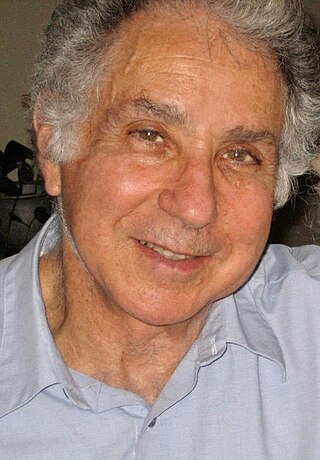
Lewis M. Steel is an American civil rights attorney and author who was co-lead counsel of the legal team that freed the boxer Rubin Carter and John Artis after they were wrongly convicted of murder. While working for the NAACP during the 1960s, he worked to desegregate public schools in the North. In 1971 he joined other civil rights lawyers, including William Kunstler, and New York Times columnist Tom Wicker, to negotiate a settlement of the Attica Prison riot. He was the lead attorney in Avagliano v. Sumitomo Shoji America, 457 U.S. 176 (1982) which established that American subsidiaries of foreign corporations must obey American civil rights laws. He works as a civil rights attorney at the New York law firm Outten & Golden LLP.
















